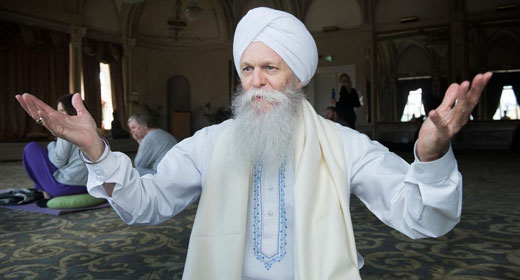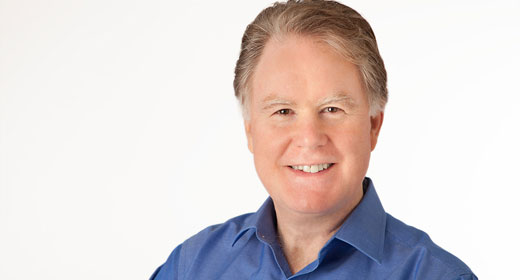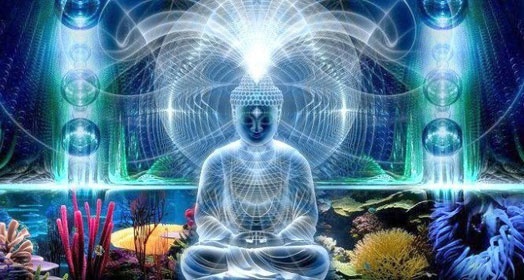Donna Quesada: Interesting, so the default, or “factory setting”is toward the negative, fearful emotions…

Guru Meher Khalsa: That’s right, so…but,we don’t like those, who wants to live that way? It’s great that we’ve developed a way that we can do Yoga class and feel better. And that’s important because it takes twice as much work to feel better, than it does to feel worse. So, that is very wonderful and very important. And that’s what most Yoga people are doing, I just want to feel better. And then there becomes this belief that we should always be feeling good all the time.
DONNA: Mhmm.
GURU MEHER: But really, we should be feeling whatever we’re feeling. Like, if we’re really a responsive organism to our environment, we should be feeling whatever we are feeling. Like, somebody asked the Dalai Lama if he ever got angry. I heard this secondhand…and he laughed and he said, “Of course I get angry.”Think how much harm has come to that man and his people in his life. Of course, he’s going to get angry. He says, “But I recover quickly.”Okay, so, I’m answering your question from several angles. One is, Yoga generally…we work at it to feel better and thank God we can do that. However, not everything can be processed by just feeling better. And so, I now find —it’s called spiritual by-passing, and not willing to face the shadow —that if I’ve got something that’s really troubling me…let’s make an analogy! If I’ve got a splinter in my hand and it’s getting infected, and my arm is getting hot and it’s getting worse, and I can shoot some Novocain in there and stop feeling it… well, I’d feel better, but the problem is festering. So, in my 40 year experiment in spiritual community, I’m very sad to say, that some great, wonderful, sincere, hard working, hard practicing Yogis… if I’ve seen unfortunately, that sometimes, if there’s something really troubling that is just ignored, then something blows up. Something caves in.
And so, if 80% of our work is to feel better, we gotta at least have 20% of it being like, if I feel bad, do I know why? So, here is my mission, that everybody in the world has this ability, but we don’t practice it yet. What if everybody in the world… when you feel bad, according to you —I’m talking about mentally and emotionally, when you don’t like how you’re feeling, that means you are going to have one of these negative emotions you don’t like —that you know what you’re feeling. Most people can’t name their emotion —you know, why you’re feeling it, and that’s even fewer people can really know… Oh because she said this. But really, why was that upsetting? And thirdly, what do you need to do to feel better? That’s information that’s just sitting there with in us whenever we feel bad, that we can know what we’re feeling, that we can recover quickly, that we can deal with things.
So it’s good that we can feel better, but if we’re ignoring, if we’re sweeping things under the rug that need to be dealt with, the wisdom of the body will not tolerate that. The body will say, “Look if you’re not listening, I gotta knock louder.”We get sick then after a while, things start falling apart in our life —it doesn’t have to be that way. We can listen… back to listening. If I can listen more closely, more carefully, earlier on, when the message is lighter and the problems are not as big, we can avoid a more catastrophic sort of attempt for our soul to wake us up to say, “you really gotta figure this thing out, here.”
DONNA: Something is amiss, and that is what we find.
GURU MEHER: So the impression is… so, I have a saying for most people. If you are willing to feel worse —that’s the first thing I need to do before working with somebody. Nobody wants to go feel those things, so that’s why we have all these elaborate ways of repressing and avoiding, medicating and things like that. But, I say, that if your willing to voluntarily feel worse —if it’s there…I’m not creating this for anybody —if you are willing to feel worse, you’re gonna feel a lot better.
So one of the first experiments I do in most of my workshops is, alright there buddy, we’re going to do a little breathing, so you feel calm and clear!…That’s how I help people feel safe, and then I’m gonna say, “All right, bring up a bad feeling. Remember something that was troubling you.”And then, I’ll work with them a little bit. They were feeling fine. Now they’re feeling bad. Thank you very much Guru Meher! But, by the end of 11 minutes, something’s cleared, something’s resolved. Sometimes the emotion is just tired of you not listening and will give you a break if you just start listening. So, it’s like an alarm. These smoke alarms in my house… sometimes they go off, you know, if I’m cooking something too smoky, they hurt your ears so bad. Like, nobody wants to hear that thing. But do I just go turn it off, or do I stop this smoke? So, that’s what we call negative emotions…are uncomfortable because if it was just like really sweet and mellow, we wouldn’t pay attention. So, this is sort of how they work. Same thing with nerves, when you cut your hand, that discomfort really commands your attention to solve the problem.
DONNA: There’s an expression that I recall:”a moment of awareness is a moment of healing.”Just that.
GURU MEHER: Wow, I love that. Awareness…I love how you said that. That comes back to, I feel awareness…our awareness can solve everything. Maybe not immediately, but eventually. And so, if we…this is great –it ties us back to your theme, awakenings, like…if we can just —usually when we have a problem, we try to go solve the problem. And what did Einstein say? We can’t solve problems with the same…
DONNA: From the same place…
GURU MEHER: …Or, level of awareness or consciousness or intelligence that we had. So,we’ve gotta learn our way out of a problem. So,we’re talking about…instead of going after the problem, I work on my awareness. And then, let my awareness solve the problem. Yeah. That works.
DONNA: Do you think we need trauma in order to embark on this spiritual journey, and is it fair to call it that?
GURU MEHER: Well, now you’re talking about my next book…
DONNA: Or “the dark night of the soul,”as we’d like to say.
GURU MEHER: Yeah. Well, you’re letting me introduce my next book that I’m working on now called Emotional Liberation, Life Beyond Triggers and Trauma.
DONNA: Okay.
GURU MEHER: So, here are the three points I’m going to be making in the book. Everyone has trauma. You know, trauma is something —it’s an event that leaves a mark on you. And so we gotta take trauma just out of the special realm of psychiatrists and psychologists and realize that we’ve all been affected by experiences. So, everyone has trauma. We have within us a system to heal it. And there’s a lot of advancement and a lot of work going on now with the brain and with behavioral therapies and stuff that are advancing our ability to heal trauma, but we are still not that good at it. We’re getting there in the next decade or two. It’s gonna be a whole new ballgame. So, if we all have trauma, and we have a self healing system, why would we have evolved millions of years…You think we have problems? You think people didn’t have problems living in the jungle with just a stick and big animals around? So,we’ve evolved with problems. We’ve evolved with a system to be aware and take care of them.
And my third point is, emotions are essential elements of that healing system. So, I alleged that without working well with emotions, we cannot heal trauma. Or at least I’ll say it in a more positive way, that emotions are there to help us heal from trauma. And so, I…since I am not a scientist, I have the advantage —I have the freedom to talk about soul. I mean, a scientist can, but how do you prove soul? From a soul’s eye viewpoint, which is really just that, let’s imagine someday that I am much more aware than I am now, and from that future awareness that I can look back at me now. That the creative purpose of trauma is to give an impetus to learn and grow. To give an impetus to learn and grow. So, if I’m living life comfortably at this level, I’m going along. I can handle things at this level… but then I hit a trauma, something that I can’t handle, I can’t get over it, I don’t know how to deal with it, it leaves me troubled, and I can’t solve it. So now, I go to work, and if I learned to heal and grow and so I can now handle that problem, or any one like it in the future… remember, it used to be traumatic to just get food in your own mouth. And always remember…your kid’s not that old yet, but I remember when my kid could not get a spoon in their mouth…
DONNA: No, I have a 29-year-old! Ricardo’s the one with the baby.
GURU MEHER: Okay, got it, got it. So, when, from a soul’s eye viewpoint, when I can do now what I couldn’t do then, when I was three, or six, or twelve, or eighteen… and I can handle now what I couldn’t handle then, I know now, what I didn’t know then. Then, I feel… then I’ve learned and grown, and I’ve learned a lesson that my soul gave me that trauma to learn. I understand it’s a spiritual viewpoint, but it’s a very positive, optimistic one. Then I’m okay again. I’m not troubled by that memory. I’m healed, and I’ve grown because of that. So, seeing traumas as challenges now…that might seem impolite, when we look at very, very, extreme, heavy,tragic traumas. But, maybe it’s easier to look at smaller traumas. The disappointment of a loss of a loved one, or a break up or something.
DONNA: Everyone’s trauma feels huge to them. A person’s broken heart feels entirely grievous, and like a death, so you can’t really put them on a scale.
GURU MEHER: So again, in answering your question, I hope I am…that we all have this thing when stuff happens, and it affects us and we need to recover. And I’ve just stumbled upon this amazing thing…That we have a psychological immune system. And the emotions are the antibodies of that. How about that?
DONNA: Because we’re so used to this kind of 50’s dogma of putting emotions against reason. Like they are the bad guys, and that we are not supposed to be emotional or acknowledge the presence of emotions. We’re supposed to be rational. And I think, to some extent, we are still in this kind of mentality.
GURU MEHER: Perfect point, perfect point. Because is it the right brain or the left brain…And in my work, what I’m doing, is saying, is, “let’s bring them both back together.”Because usually when we’re emotional, we lose our rationale. When we’re hyper-rational, we lose the instincts of our emotions. We say, “Oh I shouldn’t be afraid, so I’m ignoring that. “But when we use them, why would it be either/or? What if it’s both and that both can totally heal us from trauma?
DONNA: With the presence of that thing called consciousness that is nurtured through the Yogic practice.
GURU MEHER: Yep…yep. And awareness, yep.
DONNA: Do you think there’s something in common within the different healing practices or journeys that you’ve experienced with your own clients? For example, I’m thinking of the Buddhist teachings, that what our suffering has in common is that aspect of attachment. Is there a place for that in your approach or do you agree with that? Or, is it just different?
GURU MEHER: I hear two questions in there and the second one is about attachment.
DONNA: Yeah.
GURU MEHER: The first is more about what do I see in common? And after I give you this answer you can ask it again if this isn’t exactly the answer. But this is how I stumbled upon the system of healing emotions…because of all the great variety of kinds of issues and problems that people came to me with. Every problem brought with it one or more emotions. A great variety of problems, only really about seven difficult emotions. So I thought, hmm…you know in science we want to try to simplify things, so we can solve them. So, okay…all these problems…maybe the fact that every different kind of problem coming up with only one out of seven different emotions…Maybe there’s something to that. And maybe the emotions…then I can work backwards if I could understand just seven different entities, or the way they work…maybe they’re there arising to help solve the problem.
And so, I feel that I have sort of just, not single-handedly, but learned how to decode the emotion and see why is it there…because it’s trying to do a very specific thing. And if I could just give you this, we can come back to attachment if you want to…so I just work with fear, desire, anger, grief, depression, guilt and shame. And I claim that the other emotions, like jealousy and envy and things, are mixtures of these.
DONNA: Derivatives of those, okay.
GURU MEHER: Yeah yeah, or different flavors of those. Each of these is actually a family with different sort of manifestations. So fear…we were given fear because there’s a lot of danger out there and fear just wants to bring us to safety. We were given anger…we evolved anger because there’s harm out there. Anger wants to help protect us and to handle things. Grief…we evolved grief because there’s a lot of loss in life, and grief is that special sense that we have. Eyes just detect light, ears just detect sound. Grief just detects loss and brings with it the capability to make us whole again after loss and understand what’s important to us. On and on…Shame detects when we’ve been rejected and that’s lowered our self-esteem and shame is the teacher of self compassion and self love. And so, when I’m…what I want to try to explain in this next book, is that we have pre-existing within us, a system of self healing. So, somebody can use it themselves or a therapist can understand it and help a person use it.
So, whether it’s for yourself or somebody else, all you have to know is how the emotions work and what they’re trying to do and help let the person do it. It’s really just…it blows my mind how… I do hundreds of workshops and everything that everybody says…nothing surprises me. It all makes sense. It’s sorta like, if you had the theory of general relativity and you understood why light does what it does. So, you can hear that I’m excited because I think we already have this psychological healing system within us and we have been… we’re not quite learned how to let it work yet. Sorry if I’m getting a little over excited!
DONNA: As you should. It’s your life‘s work! If you wouldn’t mind, I would like to go back to something that you said earlier that was very interesting. You were talking about women, and lately the abuse has come to the forefront that woman have had to deal with, historically, and in many cultures across the board, really.
GURU MEHER: Still happening in them.
Read and watch Part III Here: Awaken Interviews Guru Meher Khalsa Pt 3 – Embrace The Feminine
Read and Watch Part I Here: Awaken Interviews Guru Meher Khalsa Pt 1 – We Scarcely Know The Upper Limit Of Awakening









































